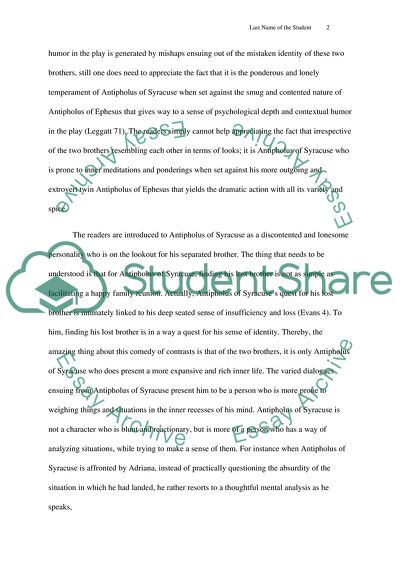Cite this document
(Contriving Humor in The Comedy of Errors by Shakespeare Assignment, n.d.)
Contriving Humor in The Comedy of Errors by Shakespeare Assignment. https://studentshare.org/english/1842572-the-character-of-antiphelous-s-and-antiphelous-e
Contriving Humor in The Comedy of Errors by Shakespeare Assignment. https://studentshare.org/english/1842572-the-character-of-antiphelous-s-and-antiphelous-e
(Contriving Humor in The Comedy of Errors by Shakespeare Assignment)
Contriving Humor in The Comedy of Errors by Shakespeare Assignment. https://studentshare.org/english/1842572-the-character-of-antiphelous-s-and-antiphelous-e.
Contriving Humor in The Comedy of Errors by Shakespeare Assignment. https://studentshare.org/english/1842572-the-character-of-antiphelous-s-and-antiphelous-e.
“Contriving Humor in The Comedy of Errors by Shakespeare Assignment”. https://studentshare.org/english/1842572-the-character-of-antiphelous-s-and-antiphelous-e.


